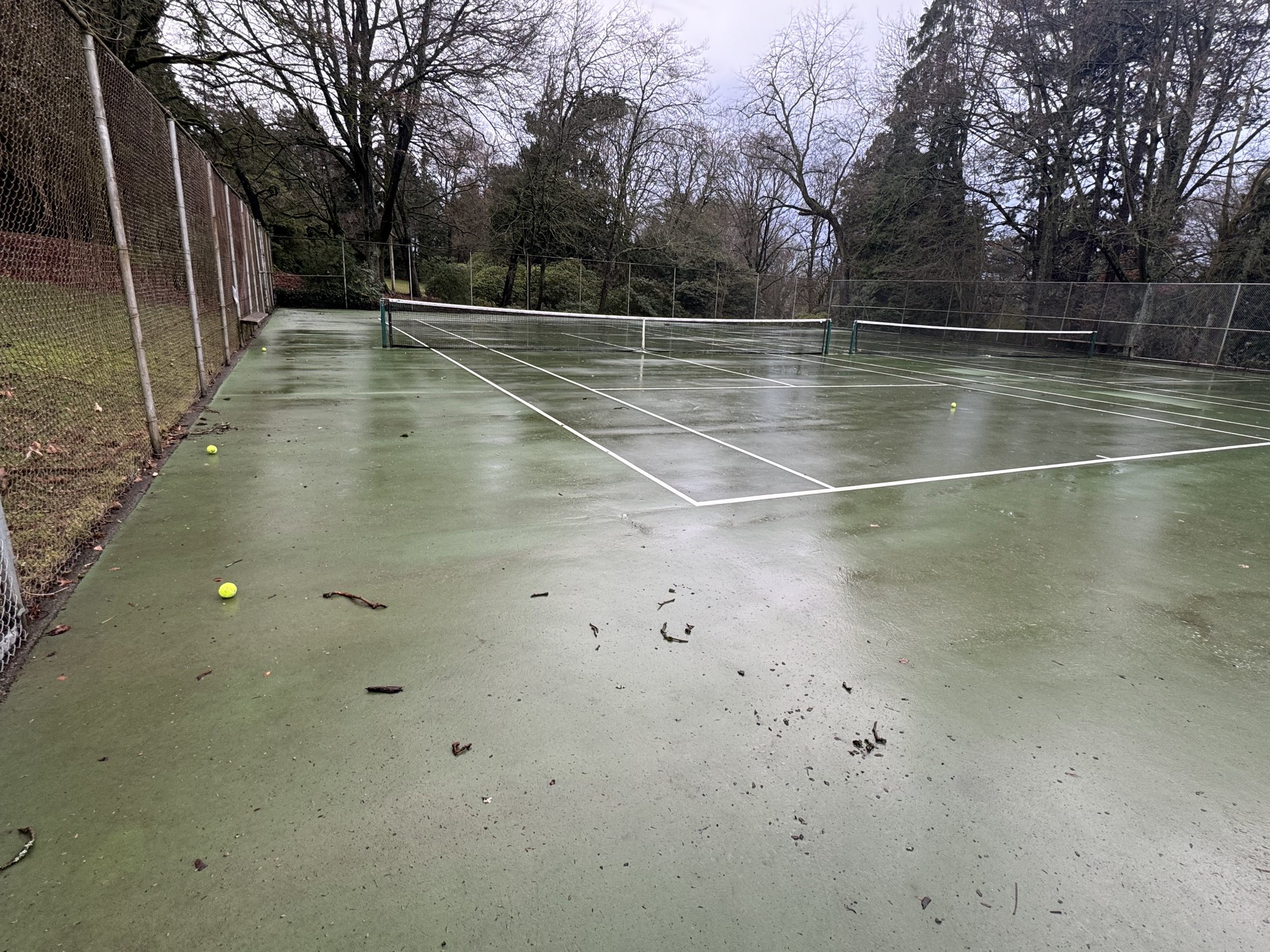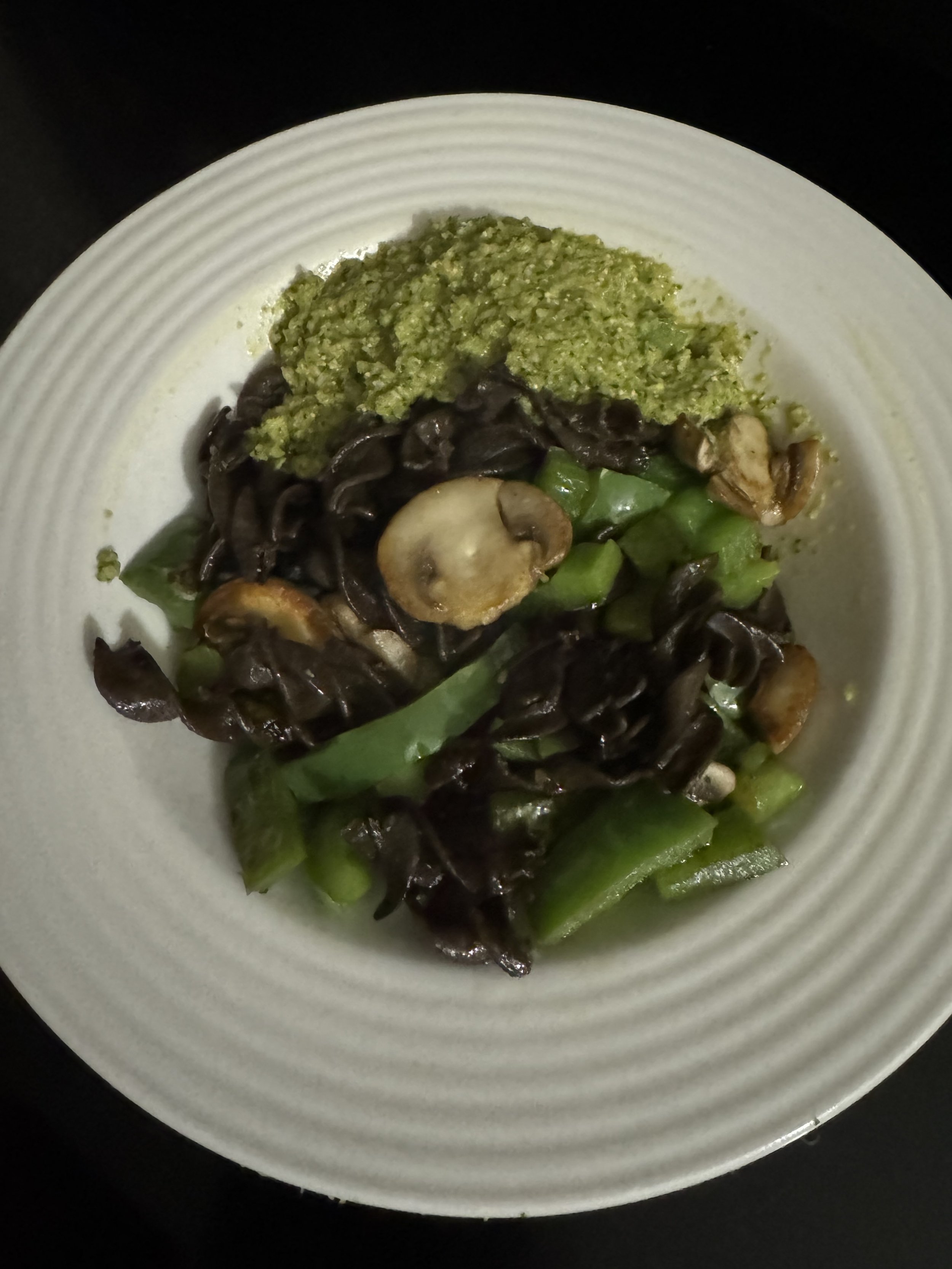At the tennis practice wall again; bailing on TikTok; more Wordsworth poems.
I’m All Lost in … what I’m obsessing over THIS week.
Week #16.
1) I stayed up into the wee hours both nights this past weekend to watch live broadcasts of the women’s and men’s Australian Open finals—until 2:30 am on Saturday morning, and 5:00 am on Sunday morning, respectively. The exciting matches prompted me, despite this week’s wet weather, to get back onto the tennis court, just as I’d been doing last November.
I even ordered four cans of brand new tennis balls—a bargain at just $11; pretty cheap for one of life’s ASMR delights.
The jumping-bean-bounce of the new Penn 2s sped up the tempo of my private rallies with the practice wall and increased the meters-per-second rate of my serves.
In fact, leaning into the extra action, I started experimenting with my historically irresolute service game, which has remained unchanged and safe since junior high school. With the Australian Open women’s winner Aryna Sabalenka in mind—I started testing out a high toss; a revelation of aces and torque.
2) When I debuted this weekly chronicle a few months ago, I inadvertently revealed my TikTok habit; two of the obsessions on my premiere list last October were TikTok influencers: piano teacher Joanna Garcia and comedian Andrea Jin. TikTok is also where I first heard about Hamas’ attack on Israel.
Well, file this under “internal feelings”*: I’m happy to report that sometime in early January, I noticed I hadn’t been on TikTok in weeks.
It wasn’t a conscious decision, but clearly my brain was demanding I abandon the toxic river of Marjorie Taylor Green, sophomoric memes (“Kiss or Slap?”), classic rock guitars, soft core 20-somethings, and time travel conspiracies.
Certainly, there’s some worthy stuff on TikTok, like the Bowie impersonators and the aforementioned piano teacher posts, but I’ve seized on the change, and I’m now gleefully committed to my TikTok detox.
* “Not seldom did we stop to watch some tuft/
Of dandelion seed or thistle's beard,/Which, seeming lifeless half, and half impelled/By some internal feelings, skimmed along/” is from William Wordsworth’s poem A narrow girdle of rough stones and crags (1800).
3) Speaking of Wordsworth (1770-1850), I’m more than two thirds into Penguin Classics’ William Wordsworth Selected Poems—a collection that has already made this weekly roundup twice.
I remain captivated. It’s not that I’m swayed by Wordsworth’s back-to-nature philosophy; I’m still in the Frank O'Hara “unless I know there’s a subway handy” camp. Nor am I particularly intrigued by any of Wordsworth’s other philosophical topics here: the sublime status of unmediated reality; the humble acceptance of the human condition; romanticized parables of mendicancy; and the dialectic flow of time (“The Child is Father of the Man”).
Rather, it’s Wordsworth’s flowing poetics coupled with his light touch and casual tone that’ve hooked me. For a poet that’s writing about such grandiose topics, Wordsworth’s verse comes with a curiosity and calm that leave me contemplating alongside him rather than quibbling with him or second guessing.
What else to do with lovely lines such as: “Nuns fret not at their Convent’s narrow room” or “Destined, whate’er their earthly doom,/For mercy and immortal bloom!” or “Surprised by joy — impatient as the wind/I wished to share the transport — Oh! with whom.”
Moreover, in an era (the early 19th century) when poems were still often written as fables and dramas (novels hadn’t been established yet as the main format for relaying epic tales), Wordsworth is an expert narrator with his stories about leech collectors, vanished sailors returned, beggars, ghosts, and inanimate (or perhaps not!) vales and ruins.
Subject of Wordsworth’s ekphrasis poem, Elegiac Stanzas Suggested by a Picture of Peele Castle in a Storm, Painted by Sir George Beaumont (1806); Beaumont’s painting is from 1805.
___
The line “The Child is Father of the Man” is form Wordsworth’s poem My heart leaps up when I behold (1807); the line “Nuns fret not at their Convent’s narrow room” is from Wordsworth’s poem Nuns fret not at their Convent’s narrow room (1802); the lines “Destined, whate’er their earthly doom,/For mercy and immortal bloom!” are from Wordsworth’s poem Sequel to the Foregoing (1817); the lines “Surprised by joy — impatient as the wind/I wished to share the transport — Oh! with whom” are from Wordsworth’s poem Surprised by joy — impatient as the wind (1815).
Speaking of repeat obsessions, an honorable mention goes to Solely’s Green banana black pasta, which was on my home menu again this week alongside a broccoli and sesame seed nooch sauce.



